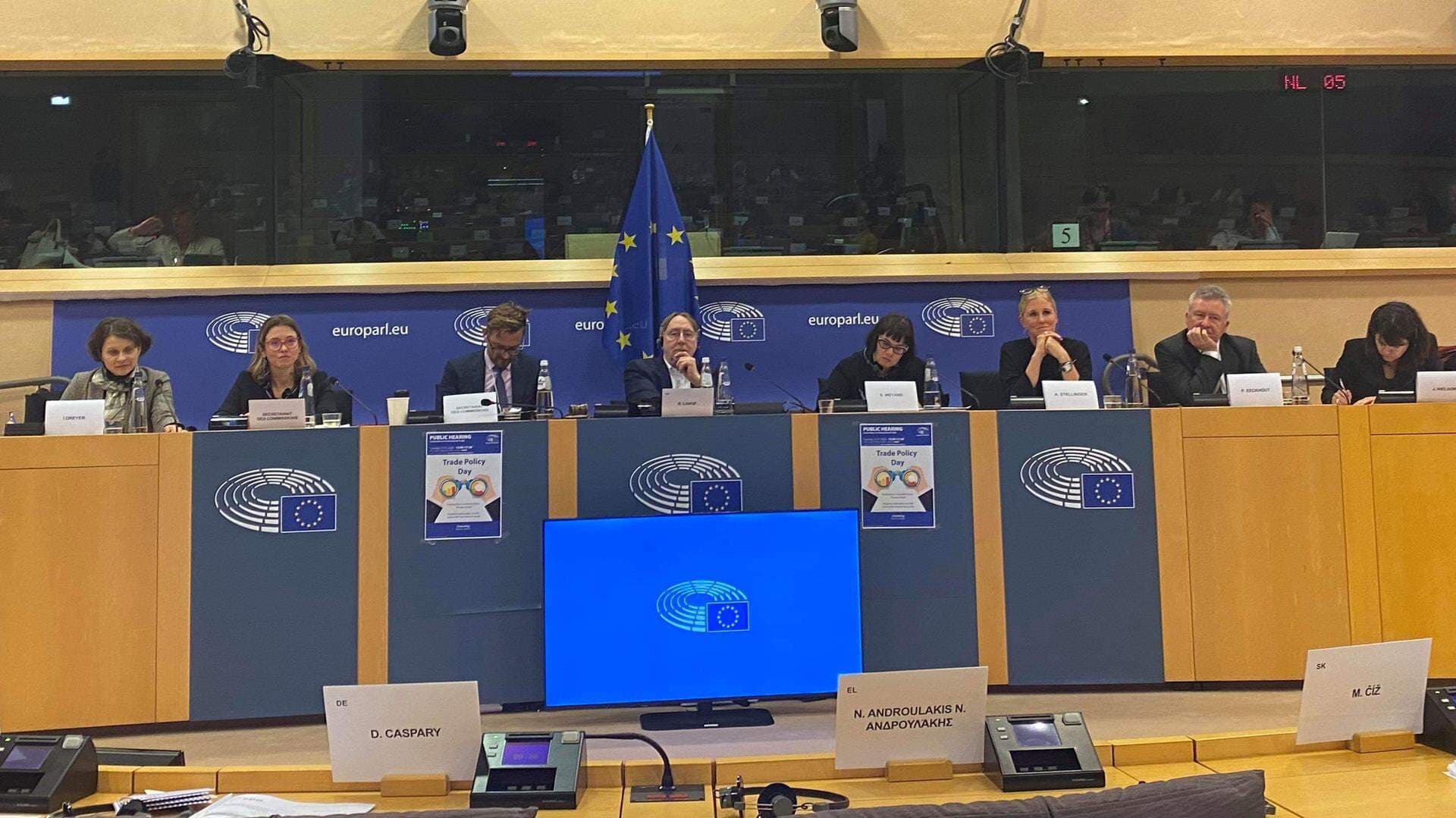Stellinger on Trade Policy Day: "Protectionism means everyone loses"
What is the way forward for EU trade policy during these turbulent times? This was the central issue during the European Parliament’s discussions on trade policy. "We live in an entirely new trade world" said Anna Stellinger, Deputy Director General, international and EU affairs.

Each year, the European Parliament's Trade Committee, INTA, organises a so-called ‘Trade Policy Day’, a hearing on the EU’s future trade policy. This year’s event, on January 21 saw Swedish Enterprise invited as the only European business organisation. Anna Stellinger, Deputy Director General, International and EU Affairs, was present.
– Over the past decades we have talked a lot about globalisation, but now we see how globalization in practice changes the very way we produce, trade and consume. So, what are the biggest changes in trade in recent years? I usually refer to these as ”the big three”; global value chains, digitalization and servicification. We now live in a whole new trade world. Over 36 million jobs in the EU depend on export to countries outside the Union, said Stellinger in her speech.
The theme was ” Trade policy in turbulent times: The way ahead.” Sabine Weyand, Director-General of DG Trade at the European Commission, opened with a reflection on the year that has just begun.
– This will be a year to remember. We will see Brexit and we are going to implement proposals for our green strategy and our digital strategy. There is also a Presidential election in the United States. At the same time, we see that protectionism is spreading; not only among the big countries we constantly watch, but also to others. We are constantly working on this. Currently, there are discussions underway between Commission President von der Leyen and US President Trump on regulations, tariffs and how we should conduct future trade relations.
One concern, according to Weyand, is that trade and trade policy have become a tool for many other areas. It can cover everything from foreign and security policy to technology and intellectual property. Undoubtedly, trade should contribute positively to, for example, sustainability and the environment, which it does. However, we must also ensure that trade policy focuses only on trade, rather than take responsibility for everything.
Anna Stellinger agreed with much of this, not least that global trade rules must be updated.
– First and foremost, the common rulebook needs to be updated. There is a gap between the reality and needs of companies on the one hand and the existing trade rules on the other. Moreover, I think we have been lazy in our discussions about the benefits of trade and must seriously discuss which problems trade can solve and which it cannot. The EU should take greater responsibility, for example, for removing barriers to the green and circular economies, which are currently holding back businesses. The EU must take a clear stand for free trade and for transparent rules. Businesses need this and we will all benefit from common, predicable rules. Here, the WTO is a key player, said Stellinger.
The WTO, with its 164 members, covers 98 percent of world trade. WTO thus provides a natural and much-needed platform for solving global issues, not only in trade but also in areas such as sustainability.
”We live in a time of paradoxes,” said Piet Eeckhout, a professor of EU law at University College of London. There is a great deal of talk about customs, for example. Trump uses customs as sanctions, and it is here where we should be talking about rules and regulations instead. It is these rules that need to be improved; we should put tariffs completely to one side. Multilateralism is under attack; therefore, the WTO must be reinforced.
Julia Nielson, Deputy CEO of the OECD's Directorate for Trade and Agriculture, expressed her concern that free trade is losing support. Not only to countries but also to citizens, who feel that they are not benefiting from free trade and are experiencing competition negatively. Therefore, the EU must be a strong party in restoring confidence.
– Global rules for global trade are required. First and foremost, I think of digitisation and digital commerce, where we need solutions for an unlimited internet. Subsidies are another area that concerns me on state capitalism. Bilateral solutions are yesterday's solution; we must strive for multilateralism, Nielson thought.
Stellinger also talked about the importance of trust, stressing that it was important to remember that trade negotiations are, to a great extent, built on trust. There must be confidence in our respective countries’ systems, regulations and authorities. It must also be easy for companies to use the trade agreements. Businesses should therefore be involved at an early stage in all negotiation processes. Otherwise we risk ending up with agreements, whether they are within the WTO or with specific countries, that companies cannot use. After all, what are trade agreements worth if they aren’t fully used?
So, what should the EU do? The answer is focus.
– The EU needs to reboot its relationship with the US and work together rather than fighting over cars and steel. Furthermore, the EU must resist the temptation of protectionism. There may be occasional short-term gains, but in the long term, the outcome will be much worse. Transparent and reliable rules, which benefit both small businesses and large industries, must be our goal. We should remember that the way forward is more trade and updated trade rules, through the WTO or ambitious free trade agreements. This even more so, as we enter into turbulent times, Stellinger concluded.